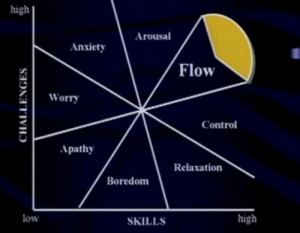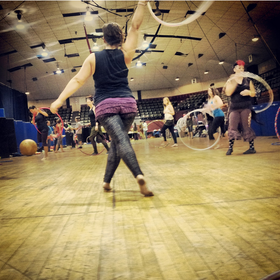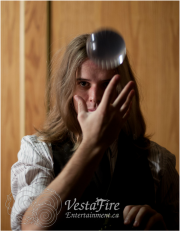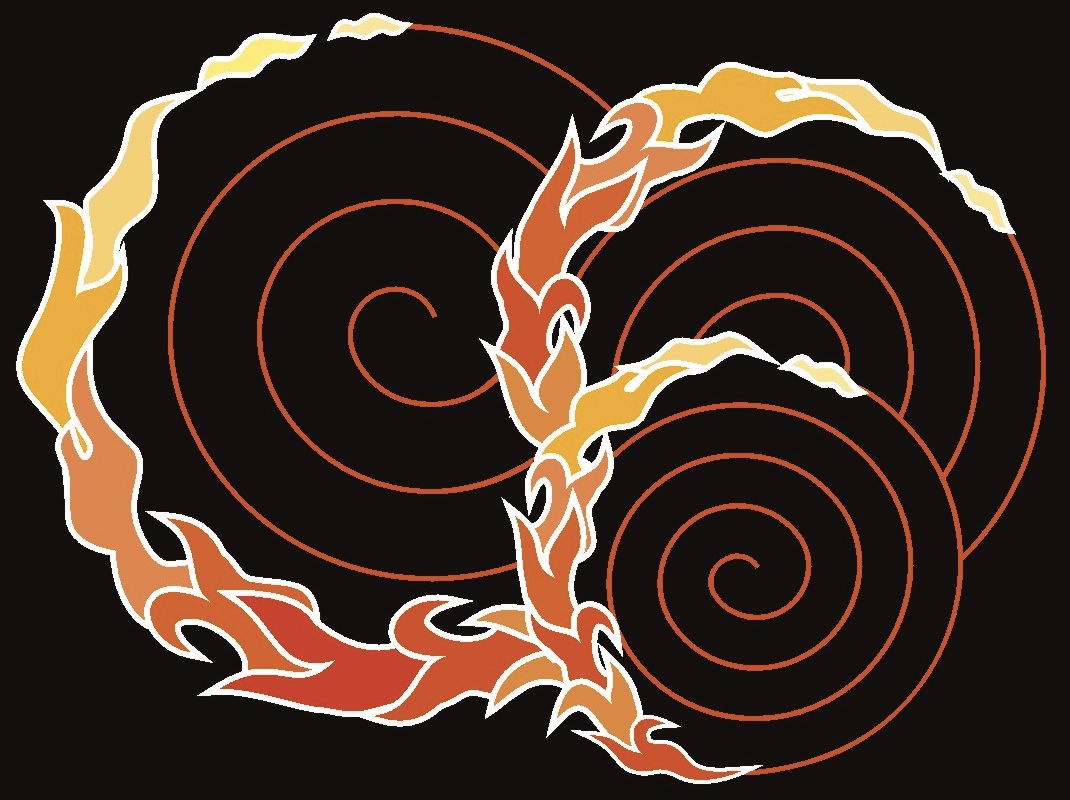PE courses involving circus skills – such as acrobatics, trapeze work, diabolo and even being a clown – are going down a storm in rugby-mad Wales, reports Matt Pickles
Miss Piper strides into her PE class in Pentrehafod School near Swansea with a bulky, lime green kit bag over her shoulder. The bag is not filled with rugby balls, bibs and cones as her pupils might expect. Instead, it holds a colourful collection of juggling balls, diabolos and spinning plates. Kate Piper is one of 12 teachers in South Wales taking part in a Government-funded project to diversifying traditional sports-based PE lessons by offering pupils circus skills training. The Physical Literacy Project for Schools trial, which is led by the Wales Institute for Physical Literacy based at the University of Wales Trinity St David (UWTSD), will end next March. But those involved say the results so far make a “compelling” case for circus to become a permanent part of PE teaching across the country.
This is likely to prove controversial in some quarters of rugby-mad Wales, where many PE teachers, politicians and parents want to produce the next Jamie Roberts or Leigh Halfpenny. But Dr Nalda Wainwright, who is director of the Welsh Institute for Physical Literacy, says that the competition-based approach to PE in primary and secondary schools needs urgent reform. “There is nothing wrong with sport at all, but the way it is taught in the UK has hardly changed in the past 70 years,” she says. “The usual format of drills and competition works for a certain percentage of kids but not for everyone. There is a real issue of high dropout rates and a lack of engagement in PE, particularly from girls.” Dr Wainwright says research shows that before the age of eight, children have a natural enthusiasm for movement and physical activity. But after that, if they are not motivated to do physical activity, they are at risk of entering a “negative spiral” of disengagement which can end in obesity, heart disease, lower bone density and increased risk of injury in later life. Girls’ enthusiasm for physical activity drops much more rapidly than boys’. “So it is vital that as many children as possible learn to love movement, and it turns out circus is a great way of doing that,” she says.
This is likely to prove controversial in some quarters of rugby-mad Wales, where many PE teachers, politicians and parents want to produce the next Jamie Roberts or Leigh Halfpenny. But Dr Nalda Wainwright, who is director of the Welsh Institute for Physical Literacy, says that the competition-based approach to PE in primary and secondary schools needs urgent reform. “There is nothing wrong with sport at all, but the way it is taught in the UK has hardly changed in the past 70 years,” she says. “The usual format of drills and competition works for a certain percentage of kids but not for everyone. There is a real issue of high dropout rates and a lack of engagement in PE, particularly from girls.” Dr Wainwright says research shows that before the age of eight, children have a natural enthusiasm for movement and physical activity. But after that, if they are not motivated to do physical activity, they are at risk of entering a “negative spiral” of disengagement which can end in obesity, heart disease, lower bone density and increased risk of injury in later life. Girls’ enthusiasm for physical activity drops much more rapidly than boys’. “So it is vital that as many children as possible learn to love movement, and it turns out circus is a great way of doing that,” she says.
Circus is a Big Tent
Dr Wainwright had the idea of using circus skills after seeing recent research carried out in Canadian schools. Academics from the University of Manitoba introduced circus into classes for 10- and 11-year-olds in six schools and compared their progress against another six schools teaching traditional PE. After a year, children taking circus said they felt more confident, more talented, and more eager to participate in PE. Their competence in 15 of the 18 key movement skills tested was “substantially” better than the control group. And, crucially, girls in the circus group were more likely to associate physical activity with happiness.
The Welsh experiment aims to see if these results can be replicated in the UK. NoFitState Circus in Cardiff gave 12 PE teachers six days of initial training and continues to support them as they introduce circus to their classes of 10- and 11-year-olds. “A lot of the teachers were sceptical at first,” admits Lynn Carroll of NoFitState. “But by the end, they said it was by far the best continuing professional development course they had ever been on.” One of these teachers, Kate Piper, says circus has transformed her pupils’ attitudes to PE. “I have been amazed by the high level of inclusion in my classes since I introduced circus,” she says. “The kids no longer identify as ‘good’ or ‘bad’, as they often do when they play traditional sports . Many of the children who used to avoid PE are now asking to take a diabolo home to practice.” She recently covered a class for another PE teacher and brought out her lime green bag of circus props. “At the start of the class, a number of girls came up to me with notes saying they couldn’t take part,” she says. “By the end of the lesson, most of them had decided they felt much better!”
The Welsh experiment aims to see if these results can be replicated in the UK. NoFitState Circus in Cardiff gave 12 PE teachers six days of initial training and continues to support them as they introduce circus to their classes of 10- and 11-year-olds. “A lot of the teachers were sceptical at first,” admits Lynn Carroll of NoFitState. “But by the end, they said it was by far the best continuing professional development course they had ever been on.” One of these teachers, Kate Piper, says circus has transformed her pupils’ attitudes to PE. “I have been amazed by the high level of inclusion in my classes since I introduced circus,” she says. “The kids no longer identify as ‘good’ or ‘bad’, as they often do when they play traditional sports . Many of the children who used to avoid PE are now asking to take a diabolo home to practice.” She recently covered a class for another PE teacher and brought out her lime green bag of circus props. “At the start of the class, a number of girls came up to me with notes saying they couldn’t take part,” she says. “By the end of the lesson, most of them had decided they felt much better!”
Not Just Clowning Around
Why does circus motivate more pupils to take part in PE? “Almost every child I meet is interested in trying circus because it offers something for everyone,” says Lynn Carroll, of NoFitState Circus. “Some like the more physical activities like acrobatics or trapeze, others like skill-based arts of juggling and diabolo, some like learning to be a clown.” Unlike in football or rugby where pupils can compare themselves to professional players, Carroll says pupils in circus classes quickly become skilled enough to teach tricks to their peers and parents, and to perform in front of impressed audiences. “To experience teaching and performing is unbelievably good for their confidence,” she says. So could we see circus in the curriculum in the future? It is already happening in primary schools in Quebec in Canada, and some schools in Austria, Holland and France. A company called Albert and Friends Instant Circus teaches circus as part of the curriculum at some schools in London. But Dr Wainwright doesn’t think curriculum change is necessary in Wales, because of the flexibility in the Welsh curriculum and recent changes following the Donaldson Review mean that teachers have the freedom to introduce circus into their classes. When the trial ends in March 2017, she hopes to expand the programme so that circus skills become a regular part of PE in Wales. She also hopes to work with other universities in Europe to design a course to teach circus to aspiring PE teachers. “Even if we don’t get the funding to do this, we will still have reached dozens of PE teachers and trainee teachers,” she says. “We will continue to teach circus skills to our PE students at UWTSD, many of whom will go on to teach circus for the rest of their careers.” So pupils in Wales can expect to try acrobatics, trapeze, clowning and juggling in the coming years. Miss Piper is going to need a bigger bag.
Read more at: https://inews.co.uk/explainers/iq/juggling-timetable-every-school-teach-circus-skills-pe-lessons/
Read more at: https://inews.co.uk/explainers/iq/juggling-timetable-every-school-teach-circus-skills-pe-lessons/






 RSS Feed
RSS Feed
